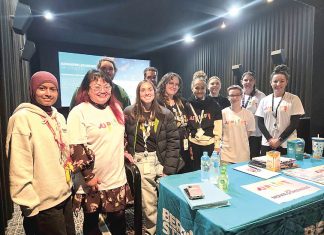
ZAIDA GLIBANOVIC
By ZAIDA GLIBANOVIC
THE state government is using a health-based response to combat public drunkenness, with a sobering up centre set for the Latrobe Valley. The controversial decision to decriminalise public intoxication started on Melbourne Cup Day. The decision came after the Royal Commission into Indigenous deaths in custody highlighted the law’s adverse effects on Aboriginal people. The new public health approach to intoxication reverses the government’s previous criminal justice lens. Minister for Mental Health, Ingrid Stitt, emphasised the significance of this shift, stating, “Simply being intoxicated in public shouldn’t be a crime”. So, what does this mean? Instead of being arrested and detained for being drunk in public, people will be supported to go to new Sobering Up Centres or other safe spaces. The new health based response will open ‘Sobering Up Centres’ dedicated to the one per cent of Aboriginal and Torres Strait Islanders population across Victoria including the Latrobe Valley and East Gippsland. Sites will eventually be set up in Geelong, Ballarat, Bendigo, Shepparton, Mildura and Swan Hill. A key sobering up centre in the Melbourne suburb of Collingwood is not yet in operation but will have a 20-bed capacity when fully operational. Stays at centres are expected to be short and at a maximum 12 hours. These reforms and the decriminalisation of public intoxication aim to focus on harm reduction to ensure that those who are intoxicated in public receive an effective response to their immediate needs. This approach will mean people can be transported to a safe location to support their recovery. A dedicated phone line managed by the Victorian Aboriginal Health Service will also be accessible to emergency services, local government authorities, liquor licensees, and transport operators. The model has been designed with input from those most affected by the current legislation – Aboriginal people and their communities throughout Victoria. The Victorian Department of Health in a media release said: “Victoria’s current public intoxication laws have had an unacceptable and disproportionate impact on the state’s Aboriginal and Torres Strait Islander communities, which is why from November 7, being intoxicated in public will no longer be a criminal offence.” The Victorian Aboriginal Community Controlled Health Organisation (VACCHO) has welcomed the state government’s decision to implement an Aboriginal-led health-based response that will prioritise services for Aboriginal and Torres Strait Islander people. VACCHO chief executive, Jill Gallagher, AO said the decriminalisation of public intoxication laws was vital for the betterment of the health and safety of Aboriginal and Torres Strait Islander people and all Victorians. “This is an historic and long overdue reform. I acknowledge the Andrews-Allan government for empowering Aboriginal community-controlled health organisations to the front and centre of this historic reform,” she said. Ms Gallagher noted that for the same behaviour, Aboriginal and Torres Strait islander people in Victoria have faced “inordinately higher rates of incarceration” for public drunkenness than non-Aboriginal Victorians. “In some instances, this can lead to devastating outcomes with some Aboriginal and Torres Strait Islander people subjected to far harsher and inhumane treatment whilst in custody,” she said. “Alcohol misuse is a public health issue, not a crime, and therefore should be treated as such.” The state government’s commitment to changing approach came after the 2017 death in custody of Yorta Yorta woman Aunty Tanya Day. For general queries regarding the public intoxication reform, see the shared inbox at publicintoxication@health.vic.gov.au









